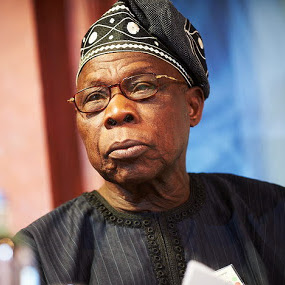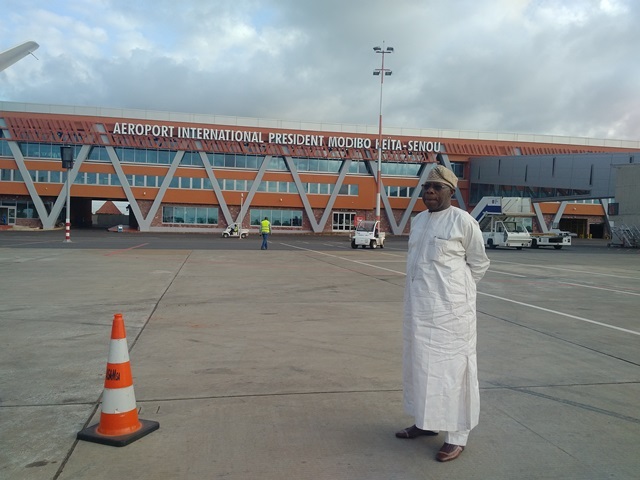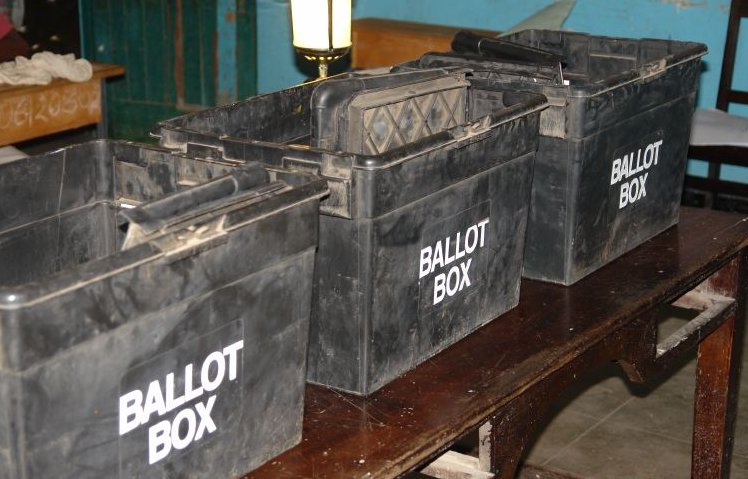News
Making Africa Work — insights from West Africa
A necessary end to business-as-usual thus has to involve, at its core, posing and answering some difficult questions.

Director, The Brenthurst Foundation

Former President of Nigeria; Chairman and Advisory Board Member Emeritus, The Brenthurst Foundation

The road from state weakness to strength is most likely under decisive domestic leadership that is committed to popular welfare.
We have just completed a tour to launch Making Africa Work across eight West Africa locations: Benin, Ghana, Cote d’Ivoire, Senegal, Mali, Niger, Burkina Faso and Nigeria.
The book’s central proposition is that Africa will have to change its business-as-usual approach if it is to create the economic growth and jobs for its upcoming demographic surge.
Sub-Saharan Africa is projected to double its population between now and 2050 to two billion people.
The eight launch programmes involved not fewer than two current prime ministers (Mali and Niger), five current presidents (Burkina Faso, Mali, Ghana, Cote d’Ivoire, and Niger), a minister as a keynote speaker at every event and multiple cabinet members in the cases of Mali, Burkina Faso, and Niger, and three former presidents. They involved more than 1,400 attendees, 35 television feeds, and over 100 journalists.
For the eight countries exemplify this challenge. At independence their populations totalled 75 million, of which Nigeria made up 60%. Today the figure has risen to 320 million. Nigeria’s share remains much the same.
By 2050 the projected population of the eight is estimated at 725 million. Although Nigeria will more than double its population, its rate of growth is not the greatest. Niger will go from 20.6 million today to more than 68 million, a 20-fold population increase since independence in 1960.
Even now, the swell in population numbers is creating all manner of security stresses and strains.
Southern European navies have been kept very busy intercepting boats filled to the gunwales with African refugees in search of a better life. In 2016, for example, an estimated 181,000 refugees reached Italy through Libya. This number is rising, and rapidly. The number of Nigerians — the largest group of migrants — reaching Italy via Libya has officially risen from 9,000 in 2014 to 37,550 in 2016.
Perhaps as many as ten thousand migrants don’t survive the journey each year, with heart-wrenching consequences. In October 2013, the decomposing bodies of 87 Niger migrants, among them 52 children, were discovered in the Sahara Desert. Their two trucks had broken down while trying to reach Algeria. Their passengers’ corpses were found in groups in a wide radius around an oasis. Some had been eaten by jackals.
Niger is one of the world’s poorest countries, second from last on the UN’s Human Development Index, only above the Central African Republic. Agadez, in its geographic centre, is regarded as a hub in the regional trade in migrants seeking fresh European pastures.
With the smuggling charge estimated per capita at $4,000, and comparing the pressures of domestic demographics versus the attraction of diaspora financial inflows, there is little local interest in ending the trade. Moreover it follows ancient smuggling routes across the region, themselves deepened by differences in economic policy. Regime subsidisation of key products — notably food and fuel — created price differentials, which have encouraged smuggling. Now this has morphed into drugs, contraband, and people across a region where, as one Niger army officer put it, "the borders are difficult to control given the expanse. Rather one has to focus on ensuring the loyalty of the people."
This is difficult in a region fraught with a cross-crossing kaleidoscope of opposition forces involving local and international Islamic jihadists, secessionist rebels and roving criminal bands, and exacerbated by the increase in populations and climate change. Niger is not alone. Burkina Faso will increase from 19 million to 43 million by 2050, and Mali, to Niger’s west, from 18 to 44 million.
It’s not only about national numbers, but also where people will be living. According to government figures, Mali’s capital, Bamako, has doubled in size to over 2 million in just seven years as a result of political instability, and is now growing at a steady 4% annually.
Hence the same answer by Malian and Niger politicians to our question: What is the greatest economic challenge you face? The answer: "Security".
For example, in Mali a Toureg rebellion led to an "accidental" coup in March 2012 (the soldiers marching on the presidential palace demanding more pay, found that the president had fled), and resulted in the declaration of a new state, Azawad. As a result, the French armed forces launched Opération Serval in January 2013, helping to bring some order, now bolstered by not less than 15,000 UN uniformed personnel.
Undoubtedly external assistance has a role to play in stabilising these environments. Niger’s capital, Niamey, has become a logistical base for anti-jihadist operations in the region, which has served to enhance its own security. Equally sorting out the troubles in Libya, which have had a dramatic and negative impact regionally, is part of the solution. As Malil’s President Ibrahim Boubacar Keïta observed, "We are collateral victims of the Libyan crisis".
But the long-term success of international endeavours will depend on the extent to which they are aligned to domestic policy. Hence the focus on local political agreements: in Niger through the 1995 peace accord with the Toureg; and in Mali with the June 2015 Bamako agreement. But, as Keïta says, "It's implementation is very hard. It is difficult to create confidence, and trust is very low. To ensure trust," he notes, "we have to end the fighting so that DDR [disarmament, demobilisation, and reintegration] can occur … and we can create one, united army."
As recovery success stories globally from Singapore to Colombia illustrate, the road from state weakness to strength is most likely under decisive domestic leadership that is committed to popular welfare and concerned less with inspiration of grand vision and governance frameworks, and more with the detail of policy content and perspiration of execution.

A necessary end to business-as-usual thus has to involve, at its core, posing and answering some difficult questions.
Some of these are already, fortunately, being asked across the region. The Niger President, Mahamadou Issoufou, says as an example that "if nothing is done in education and training, our population growth will not be an opportunity". He stated to us: "There is a need for Niger to make a demographic transition, by reducing mortality and fertility at the same time."
Currently Niger has the highest rate of population increase in Africa, at 3.9% per annum, of 7.9 live births per woman. The population now doubles every 18 years; if nothing is done, the president warns, "the period of doubling will reduce to 15 years". The reason for this rapid growth rate, he says, is down "to tradition and not religion", in the practice of child marriage, and the belief that large number of children will safeguard family income. Hence, he notes, the need for obligatory schooling delaying child marriage, the empowerment of women, and the sensitisation of religious and traditional leaders. "If we are not training and educating the children, and giving them health-care," the President warns, "they will not be profitable for us — they will just be a debt."
Additionally, absolutely critical in any country but especially those that are weak and facing such extreme demographic challenges, is to decide what the state should do and what it must leave to others. Rhetorically most countries know off by heart the patter of public private partnerships.
But until now fewer turn the rhetoric of collaboration and ceding ownership into reality, preferring to maintain even a semblance of control over delivery. What to leave for the state and non-state sectors under terms that are attractive to both is hitherto unanswered, at least if African rankings in the Ease of Doing Business and the continent’s flat-line governance performance overall over the last decade are anything to go by.
This is borne out by the relative absence of foreign direct investment. Sub-Saharan Africa received just $45 billion of the global FDI total of $1.75 trillion in 2016. Asia gained ten times as much.
Encouragingly, across the eight nations we discovered great appetite to understand how to turn the continent’s demographic moment into a development dividend and in so doing meet the key inter-related challenge of the next generation: job creation and wealth creation.
In this regard, Mali’s President Keïta noted that the book was "a tool to help Africa … to make things happen, identifying what we need to do". The head of NEPAD (and former Niger prime minister) Dr Ibrahim Assane Mayaki said as the Niamey launch that it had "done an extremely useful job in providing a manual to the continent". Ghana’s President Nana Akufo-Addo described it as "compulsory reading" which he "recommends to everyone". And the president of Burkina Faso, Roch Marc Christian Kaboré, said that "We will take this book as a guide, to use its good practices across Africa. We need to move," he added, "now, in Africa."
Indeed, we must.
Originally published in the Rand Daily Mail.

